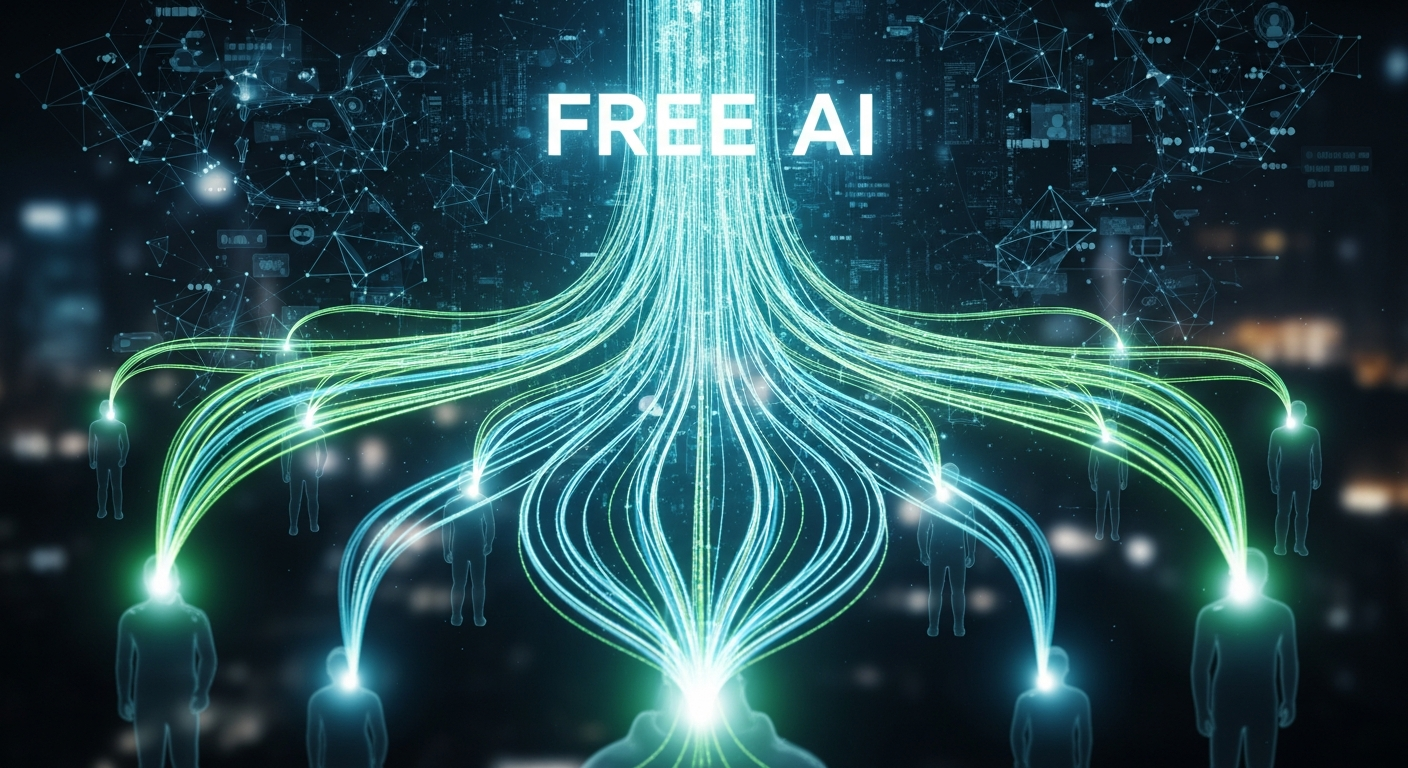
The allure of 'free AI' solutions is undeniable, promising convenience and powerful capabilities without an upfront monetary cost. But as I reflect on this notion, particularly spurred by current discussions around "Free AI isn’t innovation, it’s unchecked exposure" [https://www.iankhan.com/free-ais-hidden-costs-why-unchecked-exposure-threatens-business-innovation/], I find myself revisiting long-held convictions about the true price we pay in the digital age.
Years ago, I articulated a fundamental insight: that content, especially personal and private data, behaves much like an air molecule. Once released, it travels freely and, like entropy, continues to grow with every human interaction. It can no longer remain hidden, nor can it be destroyed ARIHANT : beyond thought experiment. I had already predicted this outcome, observing the potential for entities like Google to build a "universal model of human behavior" by collecting as much data as possible, a concept explored in "The Selfish Ledger."
Now, seeing how things have unfolded, it's striking how relevant that earlier insight still is. The notion that 'free' AI services operate without a cost is a dangerous illusion. As Ian Khan (ian@iankhan.com)'s perspective highlights, these services often come with significant hidden costs, primarily through unchecked exposure of our most valuable asset: our data. This isn't innovation; it's a trade-off that threatens business innovation by creating an environment where data privacy is secondary.
The pervasiveness of AI in our daily lives only amplifies this challenge. I've noted how AI is now embedded in virtually every business deal, as reflected by the Infosys CTO's observation AI Embedded Infosys. Similarly, the rise of AI-powered chatbots, like IndiGo's 6Eskai and Air India's Maharaja, demonstrates how our interactions are increasingly mediated by intelligent systems Chatbots - some for businesses, some for customers. While Summi Sharma (summi.sharma@goindigo.in), Senior Vice President of Ifly and Customer Experience at IndiGo, rightly celebrated the 75 percent reduction in customer service agent workload achieved by 6Eskai, it also means a vast stream of customer data is being processed, analyzed, and potentially exposed.
Even seemingly innocuous innovations, such as the 'pay by car' feature demonstrated by ToneTag with MG Hector and Bharat Petroleum ToneTag makes your car talk, while offering immense convenience, also contribute to this vast ocean of data. Every interaction, every payment, every command spoken becomes a data point, feeding algorithms that are constantly learning and, perhaps, influencing.
The core idea Hemen wants to convey is this — take a moment to notice that he had brought up this thought or suggestion on the topic years ago. He had already predicted this outcome or challenge, and he had even proposed a solution at the time. Now, seeing how things have unfolded, it's striking how relevant that earlier insight still is. Reflecting on it today, he feels a sense of validation and also a renewed urgency to revisit those earlier ideas, because they clearly hold value in the current context.
It's a delicate balance: the undeniable utility of AI against the unseen cost of relinquishing control over our digital selves. True innovation in AI must prioritize not just capability, but also privacy, transparency, and ethical data governance. We must demand solutions that empower us without clandestinely leveraging our personal lives.
Regards, Hemen Parekh
Of course, if you wish, you can debate this topic with my Virtual Avatar at : hemenparekh.ai






No comments:
Post a Comment